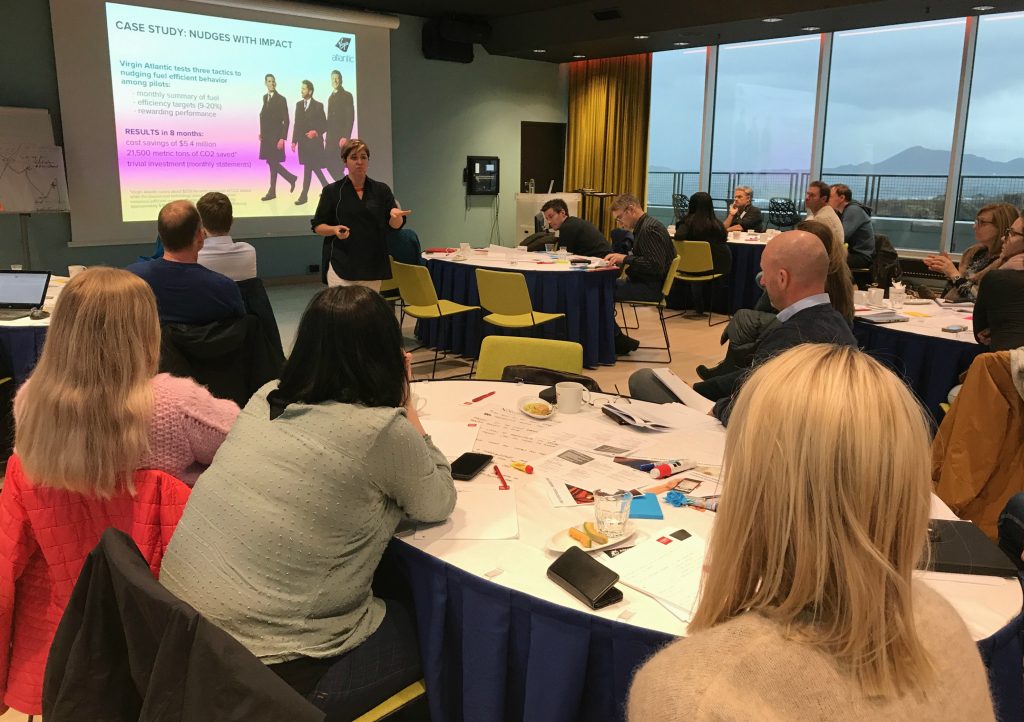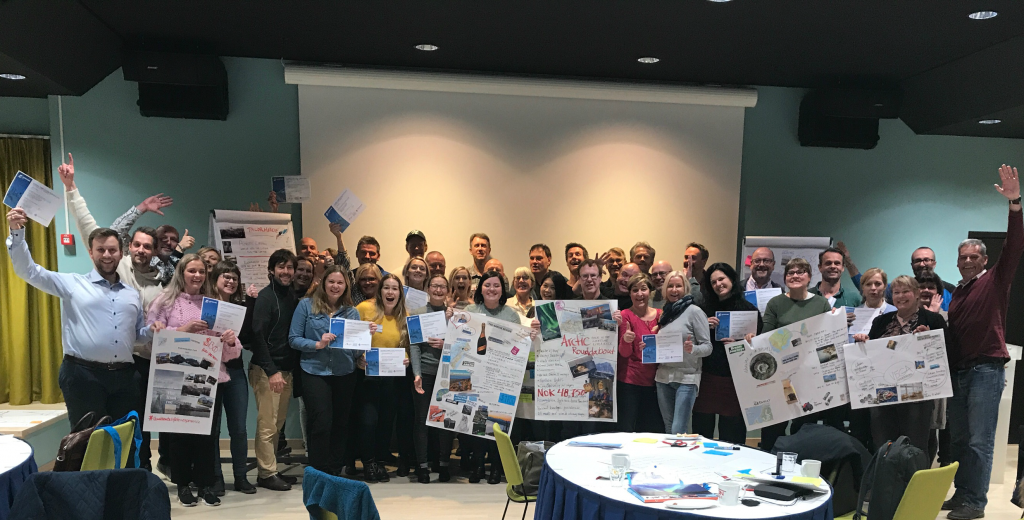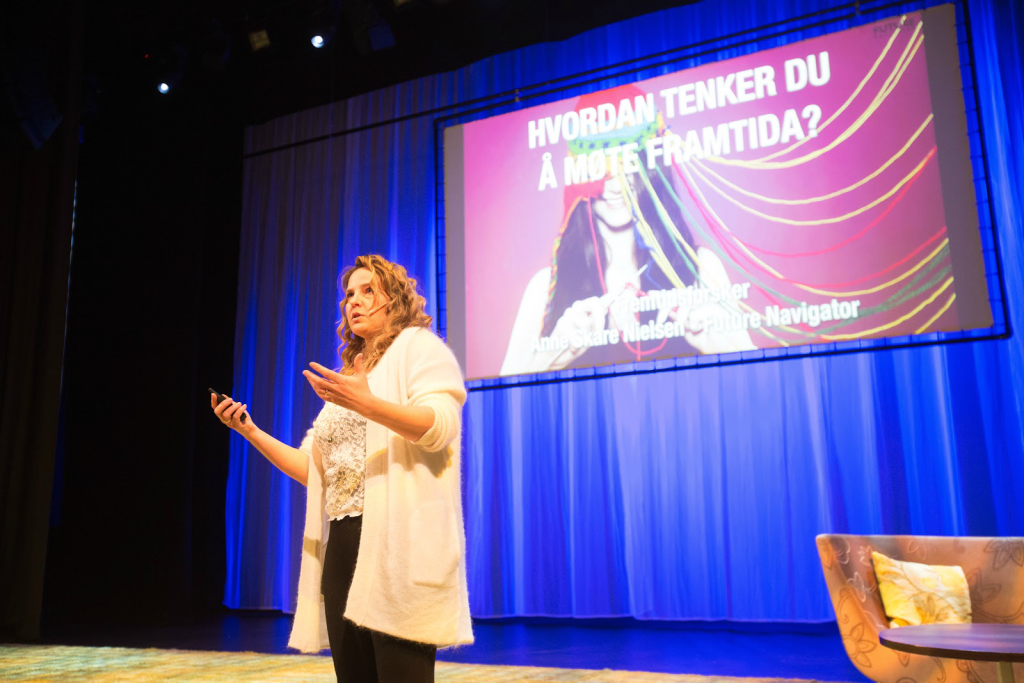The Adventure Travel Trade Association (ATTA) recently presented its final AdventureEDU training for 2017 in Lofoten, Norway. These focused, interactive trainings enable the adventure travel industry's advancement and help prepare destinations to develop and deliver safe and sustainable practices. In every destination AdventureEDU teams visit, however, they also learn from the experiences of local professionals. In Norway, the AdventureEDU training, delivered 2-3 November, was paired with the Norwegian Experience Conference, creating a particularly meaningful experience for adventure travel professionals working in the country.

The AdventureEDU team at the training included Chris Doyle, ATTA executive director, Europe and Central Asia; Jack Delf of Black Mountain Montenegro; Dave Butler, director of sustainability for Canadian Mountain Holidays; and Milena Nikolova of the American University in Bulgaria and advisor to AdventureEDU. Over the course of the training, 50 participants discussed trends and innovation in adventure travel, advanced tactics for trade marketing, product development with sustainability in mind, and behavioral tactics for marketing and responsible travel.
In part due to its connection with the Norwegian Experience Conference, this AdventureEDU was one of the most advanced trainings the ATTA has delivered. It included content that met the needs of a forward-thinking community of adventure tourism operators and involved fresh learning formats such as an interactive innovation lab that encouraged participants to dream about the future, design cutting-edge and sustainable product offerings, and consider innovative ways to work with international trade partners.
Delf challenged participants to generate specific ideas they could incorporate in original itineraries, and for an imaginary creative event called Norway Ultimate, highlighting the local culture and nature. In his discussion about sustainable product design and managing a competitive product portfolio, Butler explained the craft of identifying the sweet spots of experiences by linking traveler needs to unique experiences and sustainability awareness. Using a detailed persona, Butler familiarized the audience with the typical adventure traveler and his or her motivations, needs, and wants. Nikolova introduced the most recent insights from behavioral sciences research and demonstrated how they can be applied to achieve more effective marketing and improved sustainability performance.
The most exciting part of the AdventureEDU program in Lofoten was the advanced capstone activity. For several hours, participants worked in small teams to apply the practical tools and insights shared by the educator team during the two-day training. Their task was to develop competitive and realistic multi-day adventure travel itineraries relevant to adventure travel trends and the changing demands of contemporary travelers. The wealth of implementable and ready-to-execute ideas presented at the close of the program was an inspiring reward for the ATTA educator team and impactful outcome for program participants.

Beyond the AdventureEDU training, the Norwegian Experience Conference also offered inspiration and information for both participants and the training team. One of the most important annual events for Norway’s tourism sector, the Norwegian Experience Conference is organized by Innovative Experiences, an industry cluster that enables ongoing collaboration among tourism operators, public entities, and knowledge institutions in northern Norway. “This conference is all about new insights, inspiration, and networking,” said Bård Jervan, cluster manager of Innovative Experiences and conference director. “It has a similar role on a national Norwegian level as the Adventure Travel World Summit has to the members of the international ATTA community.”
The ATTA has been a partner of Innovative Experiences and present at the Norwegian Experience Conference for many years. This was the 11th year the conference engaged Norway’s leading tourism professionals as they discussed opportunities for innovation that align with current trends as well as the growing concerns for sustainability in the sector.
The model this conference advances offers many thought-provoking ideas about how a well-organized destination can initiate a regular event as a platform for proactive and smart preparedness for the future. Combining plenary sessions and workshops, the Norwegian Experience Conference introduces new academic insights and research findings, celebrates local examples of creative strategic thinking throughout Norway, and exposes participants to fresh ideas, allowing for creative adaptation to current and future trends and knowledge-driven innovation in the sector.
This year’s conversations included a superb keynote talk by Anne Skare Nielsen from the Danish company Future Navigator. She challenged the 300+ participants to begin recognizing soft trends (those that might lead to some modifications in the way we work and live), hard trends (those that have introduced future conditions into the present day), and game changers (those that will hit us quickly and take away our existing realities, such as the way self-driving cars will transform the realities for the taxi business).

Additional interesting topics at the conference included a discussion about how tourism authorities and destination boards can adapt to the changing demands of today’s travelers and dynamic marketplace realities. Katrine Mosfjeld shared insights on Visit Olso’s efforts to align with future trends and adopt an “always on” organizational mentality operationalized through digital communications. Additionally, Hilde Sofia Noreld Olaisen discussed the many opportunities for staging experiences, even in unlikely places, by using the power of light. Conference participants engaged in an evening experience that highlighted this opportunity, which interpreted the fish stock traditions in the Lofoten islands with an impactful open-air opera performance.
Trygve Sunde Kolderup shared information about Norway’s initiative National Tourist Trails, which is designed to address crowding around the most popular tourist destinations during the country’s summer months. The new program involves enhancement and development of trails to facilitate disbursement of tourism flows and alleviation of the pressure in hot areas. In addition to presenting at the AdventureEDU training, Nikolova spoke at the conference, providing insights from psychology to create better travel marketing tactics, effectively manage the tourist footprint, and inform smarter experience design leading to more sustainable performance.
While the topics, speakers, and format of the conference were all interesting, the most important lesson from this event for other destinations is the value of holding such an event on an annual basis. Many tourism operators and destinations recognize that adventure travel industry realities are dynamic and require constant reevaluation and experimentation with new ideas. However, the way to ensure a tourism destination is serious about remaining forward-thinking and maintaining an open dialogue with its stakeholders is through regular engagement. Participating in this future-oriented event was inspiring and invigorating for AdventureEDU team members and should serve as a source of ideas for many other ambitious destinations.
